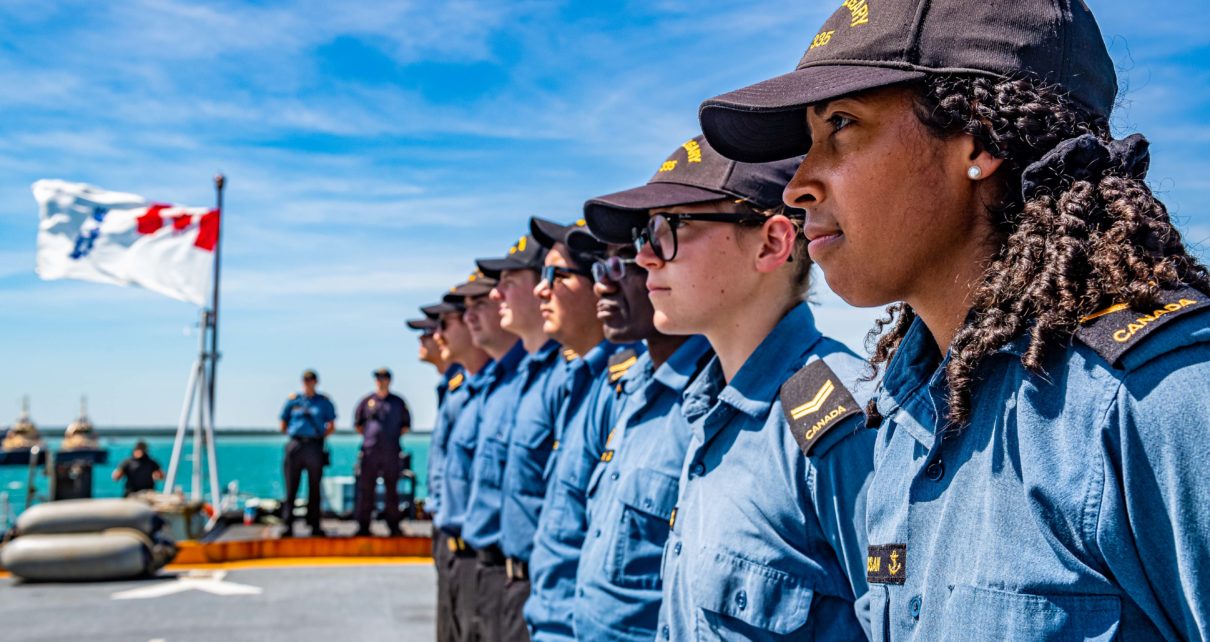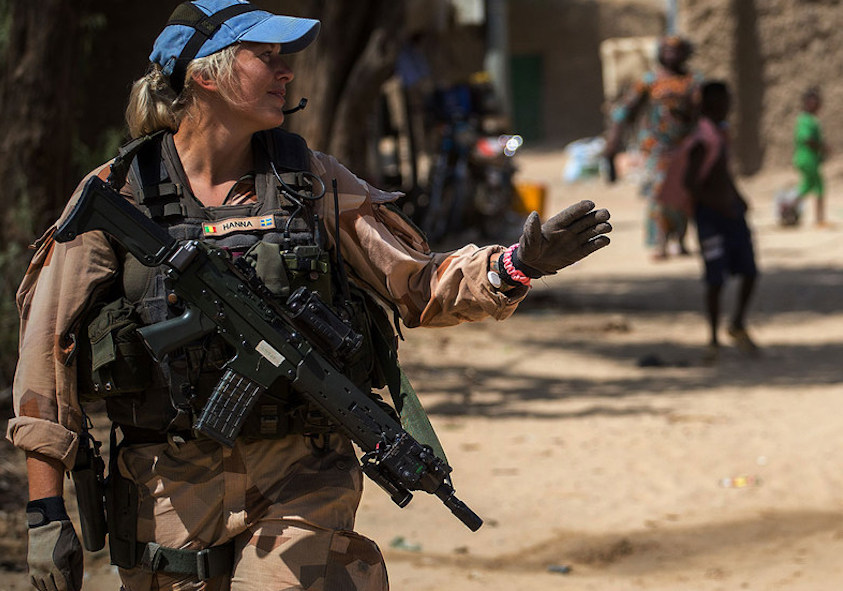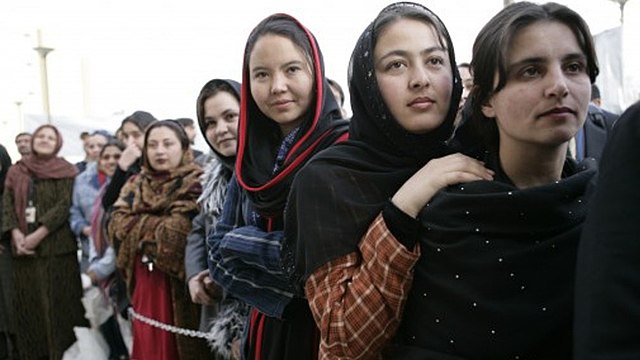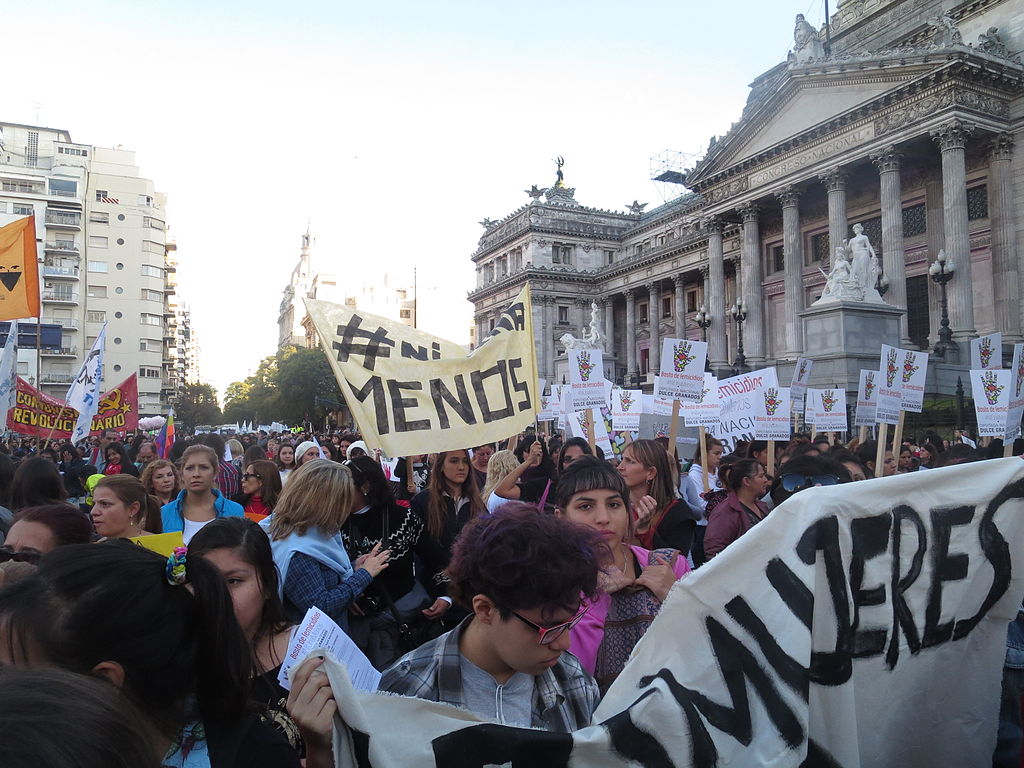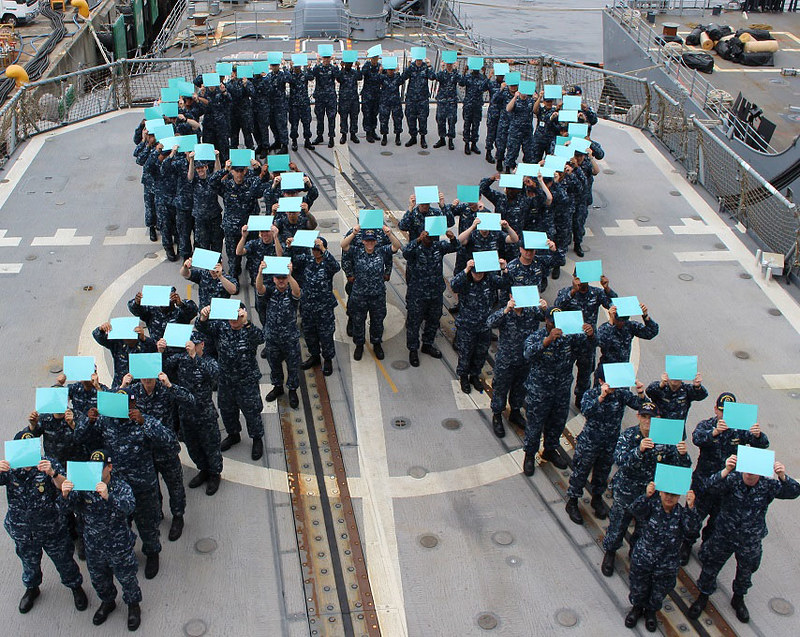Intersectionality and lived experience, though standard concepts within many policy areas, has been largely absent from military diversity and inclusivity initiatives. In this article, Caleigh Wong explores the Canadian Armed Forces’ current leadership crisis through this lens to understand how a broader understanding of identity may help inform long-overdue institutional reform.
Women in Security
Women in Security covers a wide-range of issues as it explores the link between women, security, and development. As a forum to stimulate discussion and instructive debates, the NATO Association of Canada will examine the ways in which women both contribute to and are the focus of Canadian and NATO defence and security initiatives. This program also offers a critical look at the structures and institutions that shape the role of women in security at home and abroad.
Unpacking the Debate on Gender-Neutral Conscription: The Sweden Case
In this article, Caleigh Wong investigates the debate surrounding female conscription and Sweden, one of the few countries who has incorporated it into their defence policy. The Sweden case study offers justification for this practice through both a gender parity and operational effectiveness lens, but also presents shortcomings in its ability to meaningfully contribute to true equality.
A Turning Point for the Canadian Armed Forces: What this Means at Home and Abroad
The current institutional crisis underway in the Canadian Armed Forces is not only a domestic issue with extensive human costs for servicewomen and men, but a potential threat to broader Canadian international defense capabilities. In this article Caleigh Wong discusses the current investigation into sexual misconduct in the military and what this means for an organization crucial to upholding Canada’s democracy.
The Long and Winding Road: NATO and the UN’s Approach to Women and R2P
In this article, Nicole Dougherty, explores how NATO and the UN have approached the topic of Women and the Responsibility to Protect (R2P). The article explores how the organizations have created policies and practices meant to address this issue and provides some policy suggestions on how they can improve them in the future.
U.S. Withdrawal from Afghanistan: What it Means for Women
Mary Peplinski discusses the fragile peace agreement between the United States and the Taliban, and examines how an early withdrawal of American troops could worsen violence and compromise advances in women’s rights in Afghanistan.
The Female Qur’an Experts Helping to Fight Radical Islam
Author Mary Peplinski showcases a unique program in Morocco where female Quranic scholars are helping to counter radicalization. She explains why other countries should look at developing similar programs to increase the effectiveness of national CVE strategies.
Gender-Based Violence and COVID-19
COVID-19 and Womens Rights: Ethan Schwartz showcases the hidden impact of COVID-19 on Gender-Based Violence.
Why Women Play an Essential Role in the Canadian Armed Forces
The NATO Association’s Mary Peplinski examines Canada’s struggle to recruit female
peacekeepers and explains why it is so important to involve women in peacekeeping operations and
military operations around the world.
The Danger of Gender Stereotyping Canada’s ‘Jihadi Brides’
In this article, author Mary Peplinski explores the consequences gender stereotyping may have for national security and counterterrorism efforts in Canada. The article will focus specifically on the cases of women who are trying to return to Canada after leaving to join ISIS.
Where to go from here? NATO’s first step in their Sexual Exploitation Policy
In this article, the NATO Association’s Nicole Dougherty explores NATO’s new Policy on Preventing and Responding to Sexual Exploitation and Abuse and the steps that the organization could take moving forward.

